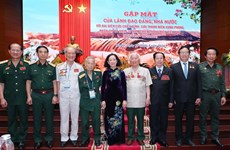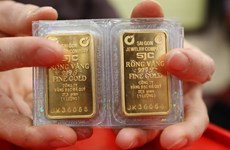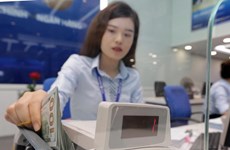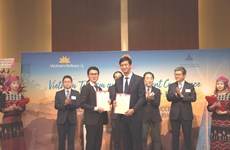EVFTA: opportunity to better Vietnamese agricultural products’ brands
The European Union – Vietnam Free Trade Agreement (EVFTA), once taking effect, will benefit the agricultural sector of Vietnam which is leading the world in pepper exports and ranking second in terms of coffee exports, third in rice, fourth in seafood and fifth in wood and wood products.
 Packaging rice for export (Source: VNA)
Packaging rice for export (Source: VNA)Hanoi (VNA) – The European Union – Vietnam Free Trade Agreement (EVFTA), once taking effect, will benefit the agricultural sector of Vietnam which is leading the world in pepper exports and ranking second in terms of coffee exports, third in rice, fourth in seafood and fifth in wood and wood products.
Tariff-related incentives will open up opportunities for Vietnamese agricultural products to gain a firm foothold in a wide market with 28 member states. However, it is compulsory for Vietnamese enterprises to work to ensure quality requirements from the EU side.
In the EVFTA, Vietnam commits to protecting 169 geographical indications of the EU, while the latter will do the same with 39 of the former. All the geographical indications of Vietnam are related to food and farm produce.
Under the agreement, 24 percent of tariff lines of Vietnamese agricultural products will be reduced to zero in the first year after it becomes effective, and 99 percent will be cut after 10 years. Meanwhile, the EU nations will decrease taxes for rice products to zero after 3-7 years, 520 out of 556 tariff lines for vegetables and fruits, 85.6 percent for processed vegetables and fruits, and 93 percent for coffee and pepper right after the agreement takes effect.
Do Ha Nam, Vice President of the Vietnam Coffee – Cocoa Association, underlined big challenges facing Vietnamese enterprises in general and those working in the coffee sector in particular, especially in ensuring quality and food safety.
He stressed the need to strictly follow regulations on technical barriers and food safety and hygiene committed in the FTAs in general and the EVFTA in particular.
The official advised coffee firms to intensify deep processing, and farmers to shift from traditional to sustainable cultivation, while emphasizing the importance of close connectivity among the domestic enterprises and between them and European distributors.
Experts agreed that the most difficult barrier facing Vietnamese farm produce is food safety.
Nguyen Thi Thu Trang, Director of the WTO and Integration Centre under the Vietnam Chamber of Commerce and Industry (VCCI), said that FTA commitments do not remove requirements on technical barriers related to trade, rules of origin, and food safety.
More opportunities mean stricter requirements on quality, Trang stressed.
Sharing the view, Tran Cong Thang, deputy director of the Institute for Agriculture and Rural Development Policy and Strategy, said the EVFTA will make regulations on food safety and rules of origin of importers stricter.
Moreover, Vietnamese firms have to abide by regulations related to social responsibility, labour issues, gender equality, and solve challenges on controlling trade fraud, he stated, suggesting local enterprises to organise distribution channels effectively to be able to compete with imported products.-VNA













